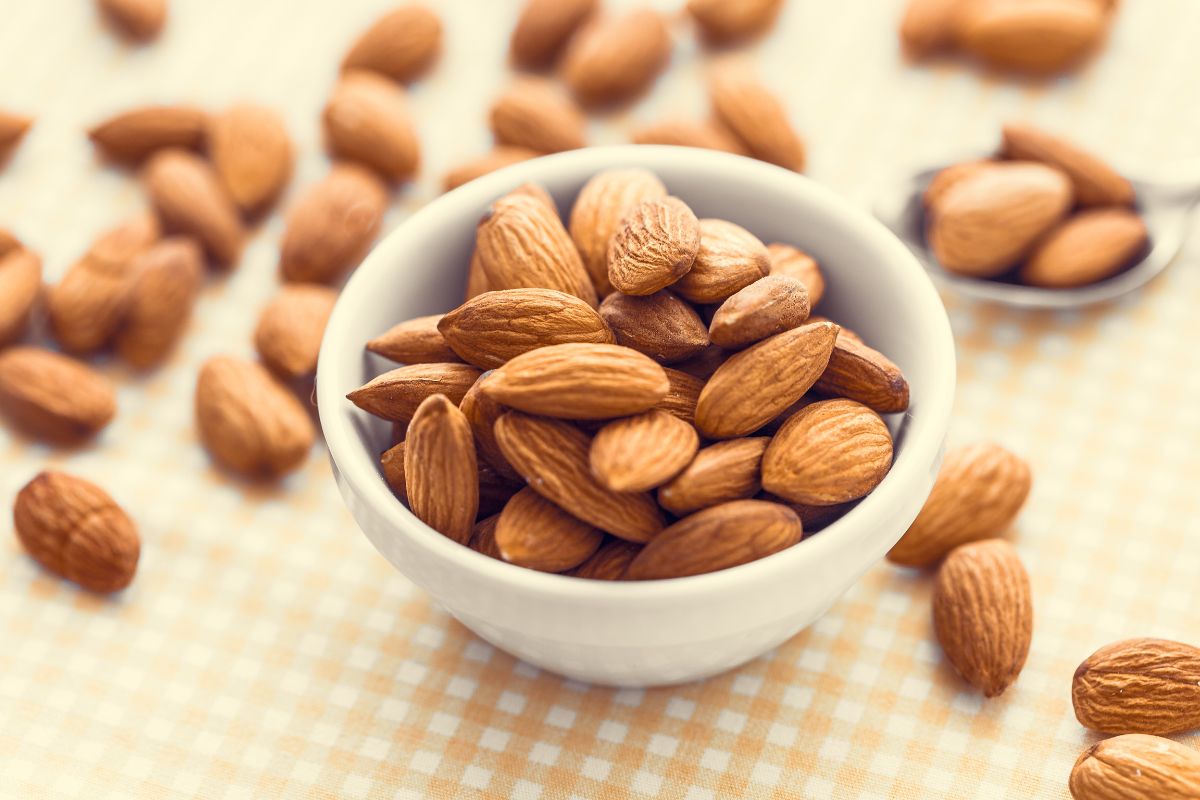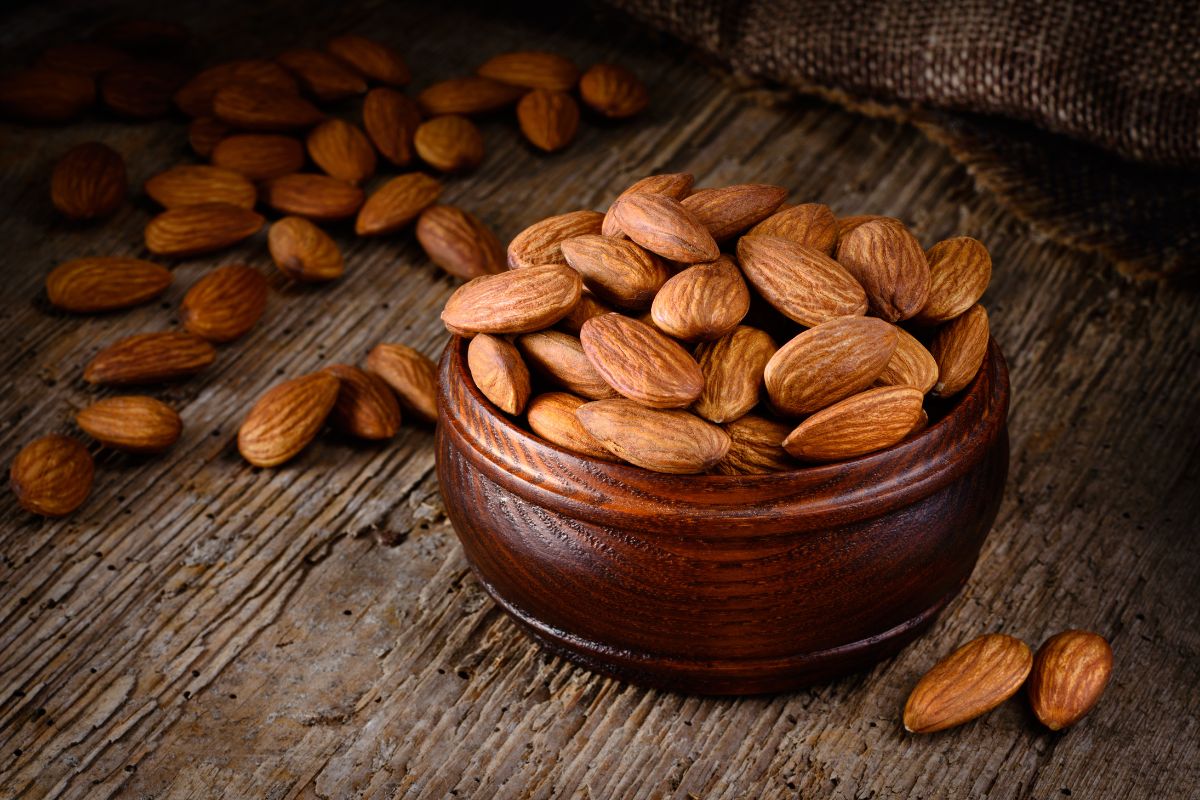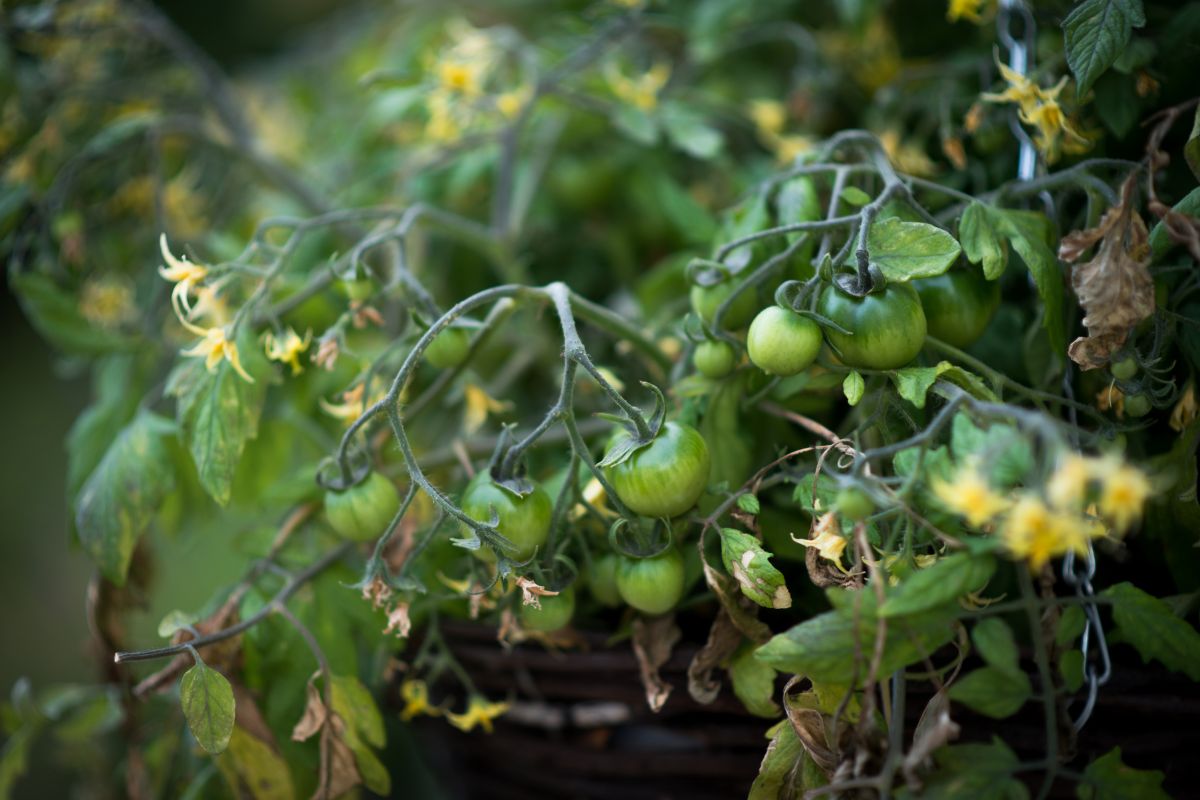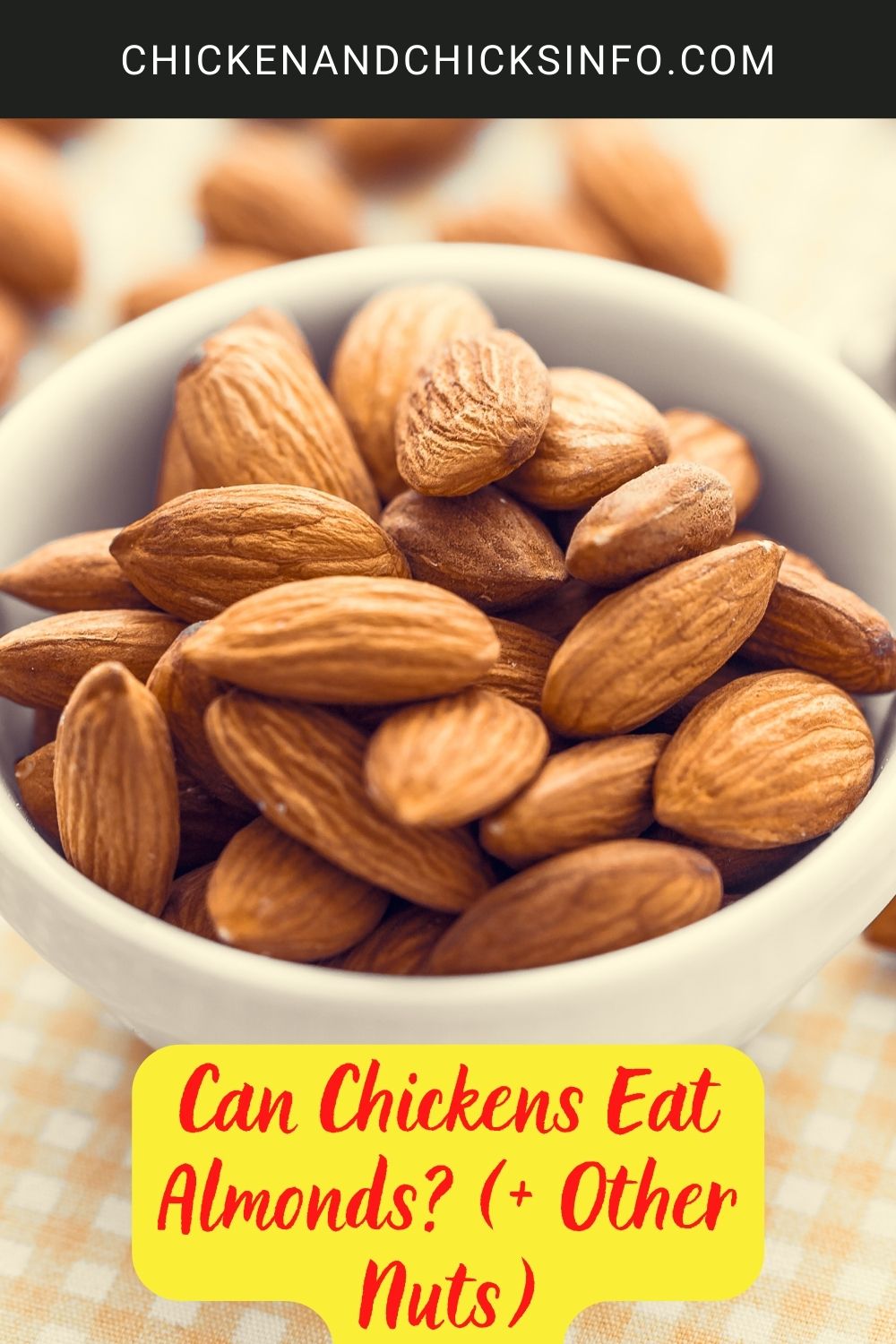
Chickens can eat almonds, yes. There are two types of almonds, however; sweet almonds and bitter almonds. Sweet almonds are the common type we eat and are fine. Bitter almonds are potentially toxic and to be avoided.
Jump to:
Are Almonds Toxic to Chickens and Other Pets?
You may have heard a rumor that almonds are toxic to pets, and there’s some truth to this.
There are actually two very different types of almonds;
- Sweet almonds - these are the almonds that are most commonly sold in stores.
- Bitter almonds - these are the almonds that are toxic as they contain traces of hydrogen cyanide.
Much like the pits of some fruits, like peaches, apples, and cherries, bitter almonds contain hydrogen cyanide which is a toxin that’s potentially very dangerous.
These almonds contain a much higher amount though, and even eating a couple of them can cause some serious health issues.
This is where the rumor comes from that almonds are toxic to pets. The bitter almond variety is not commonly sold in stores across the U.S. as far as I’m aware though.
Are Almonds Healthy for Chickens?

Like most nuts, according to Healthline almonds are packed with good nutrition. Most of which is great for chickens, just a 1-ounce serving of almonds delivers:
- 6 grams of protein
- 3.5 grams of fiber
- 14 grams of fat
- And a wide range of vitamins, minerals, antioxidants, and other good nutritional content.
Obviously, nuts alone do not provide a good balance of nutrition for chickens. They should be getting the staple of their nutrition from a quality commercial feed.
Almonds and other nuts are great as a treat food though. Especially as they are high in protein, which is what laying hens need to produce eggs at their best.
What Other Nuts Are Good for Chickens?
Chickens can eat most nuts, as can all birds. If you want to try other nuts with your flock, I recommend giving them:
Pistachios - You can read more about the benefits of pistachios here.
Cashews - You can read more about why cashews are a great treat food here (but the shells are not).
Hazelnuts - A favorite around here, and a tasty treat for my chickens if I want to share.
Walnuts - You can read more about the benefits of walnuts here.
Pine Nuts - Not the most common nut, but they’re great for chickens (read more here).
How to Feed Almonds to Chickens
Taking into account what I said above, it’s worth double-checking that you have sweet almonds, not bitter almonds.
With the right almonds in hand, the general rule when feeding any nuts to chickens is to make sure they’re not salted and to break them up into bite-sized pieces.
Remember, chickens do not have teeth. They will peak at stuff to break it up, but it’s going down into their gizzard to be chewed up.
Nuts are ideal to scatter around to give your chicks something to forage for. So you can either throw some around or put them straight into their feeder.
What Should You Not Feed Chickens?

Sweet almonds and other nuts are fine for chickens, but there are some foods that you may have laying around that aren’t.
Here are some of the foods to be aware of that are potentially toxic or bad for chickens:
- Raw or undercooked beans - They contain harmful lectins, be very careful.
- Green potatoes and tomatoes - Some plants in the nightshade family produce toxins that are harmful to chickens. When tomatoes and potatoes are green, for example, they are producing solanine.
- Tea and coffee - Caffeine is toxic to chickens.
- Chocolate - There are a couple of compounds in chocolate that are toxic.
- Sugary treats - Soda, candy, and sweet stuff is not good for them.
- Avocado - Only the pit inside and the skin is toxic, the flesh is fine.
Related - Can chickens eat sweet potatoes? (Yes, they don’t produce solanine)
In Summary - Can Chickens Eat Almonds?
Hopefully, the difference between sweet and bitter almonds and the potential risk is perfectly clear now.
Sweet almonds are safe for chickens, and more so they are an awesome protein-boosting snack for laying hens.
Just keep in mind that at least 90% of your chicken’s diet should be met with a good commercial feed. For the other 10%, you can feed them nuts, fruits, vegetables, and other healthy foods that are good for them.
Resources
What Are Bitter or Lethal Almonds? - TheSpruceEats.com
9 Evidence-Based Health Benefits of Almonds - Healthline.com





